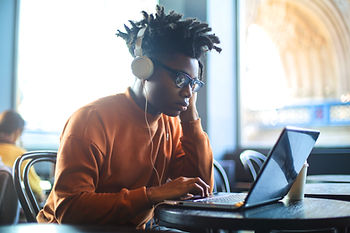
Despite a rather intense desire for music that often feels more like a love affair than anything else, the connection between music and drugs wasn’t explained to me until I had become much older. The very idea that my favorite pastime could be so related to substances I’d never tried before was mind-blowing to me.
Luckily, if listening to music was like anything like drugs, it likely came down to what it does to our dopamine. If the music we enjoy affects our brain in the same way our favorite drugs do, then it’s only a matter of time before we either hit nirvana or fall careening into the never-ending ocean.
In an article for Wired, Morgan Meaker wrote that, “I woke up one-day last year and realized I no longer listened to music. Instead, I just listened to sludge—a blur of indistinguishable songs that imitated my music taste.” Is Meaker right? Has iTunes and Spotify turned music from its vaunted spot of measured greatness to an indistinguishable force of sludge we are all just stuck with now? If that’s the case, does it make music more like a drug or less like one?
Music Is For Kids and Lovers Alike
When was the first time you felt a connection to the music you listened to? Did you feel it during a Spice Girls or Michael Jackson song? Were you more motivated by the electronic sounds coming out of your town at night or did you get to enjoy an incredible concert headed up by Taylor Swift or Stevie Wonder? However young you were, you likely felt that same kind of musical magic pushing itself through your body. You screamed, yelled, and enjoyed your musical situation so much that it likely made the impression that brought you here.
What about when you were spending time with the love of your life? Do you remember the music coming out of the coffee shop speakers or seeping through your car on your first date? Do you remember all of the memories of the music coming out of your mall speakers or being played while you grabbed your favorite Starbucks coffee? These small events that weave in and make your big events even bigger. But what if Meaker is right? What if those memories going forward become one more thing we commit to our AI networks so we don’t have to think about it anymore?
As a music fan, it almost hurts to think about it. The idea that something we’ve loved so much and for such a long time can be lost to us because we don’t have time to listen to it. When we have sludge, we don’t have a musical foundation anymore. We just have a series of songs we enjoy.
How To Get Over The Sludge
Meaker says that getting over the sludge simply means getting back to the music.
“I had been feeling pretty good about kicking my sludge habit. But then last week I listened to a clip of Ariana Grande singing the Rihanna’s song “Diamonds.” Only, Grande wasn’t actually singing. Her voice had been generated by AI.”
That’s something I remember hearing years ago. If you want to really feel the musicality of what gets brought to the table, it becomes less about the drugs you bring to the session and more about the music you find along the way. Getting back to the best parts of music means recognizing how it affects your dopamine and how it can therapeutically heal you when it can do what it does. You simply close your eyes and enjoy the mood-altering sounds as they’re delivered to your ears.
While you could spend $50 on an album you’ve already saved to your phone via Spotify, you can also use the time you have to really dig into something new. Trust in the musical nature of all these artists that are constantly out there making new musical choices each day for your benefit. We know music can be therapy, but do we know what the musicians who pain themselves to make it can be? What role do they play in our constantly updating musical minds? What else can we do to make their lives easier, and our lives better? How much more musical can we be in the 21st century?
For me, I think it means continuing to make and appreciate music even more as I move along. I’ll enjoy the old stuff that got me here, but I will keep paying attention to the sludge at work as well. It may be difficult in this AI-flavored world we’re heading toward, but I’m confident that taking my musical love to new places means allowing myself to leave the places I’ve been to first. Once I’ve done that, I’ll be able to reinitiate those old memories of being a kid and a lover all over again. I’ll be able to rally and raise my dopamine levels with each new brush with new music.
#AI #music #Rihanna #ArianaGrande #sludgemusic #spotify #spotifyplaylist #modernmusic #popmusic #applemusic #youtube #drugs #dopamine #musictherapy







